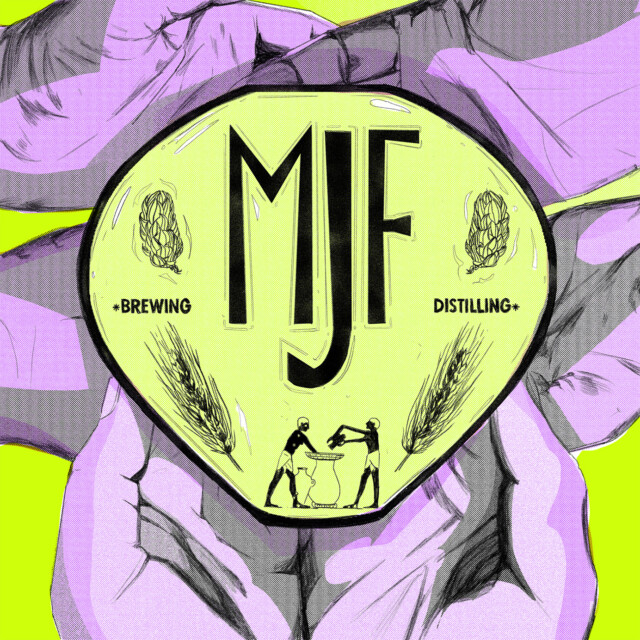This feature is part of our 2024 Next Wave Awards.
Like the rest of the world, Garrett Oliver had plenty of time alone with his thoughts in the first half of 2020. With the country gripped by the pandemic and convulsing from the murder of George Floyd, he found himself pondering his own place in the American experiment. What was a brewery’s responsibility to the project of social justice? What about its longtime brewmaster’s?
Oliver, who is Black, is a testament to the career growth craft brewing has to offer. He had achieved sustained success in business, kept a globetrotting travel schedule, and enjoyed genuine fame in the food and drink world. Sure, he is uncommonly talented, and his first-ballot, hall-of-fame career in beer unfolded in step with the craft segment’s explosive ascent over the past couple of decades, rather than the tough sledding of this one. But even though the path he took has indisputably narrowed, it was still there.
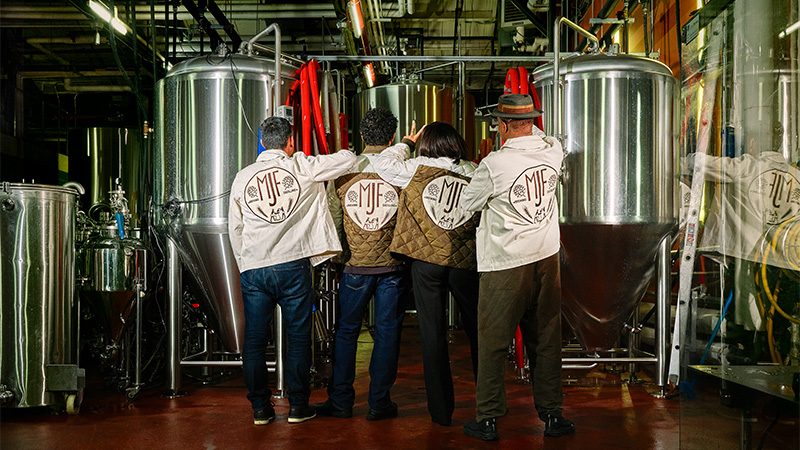
Yet in his three decades working as a brewmaster, he couldn’t recall a single Black applicant to work in his brewhouse. Why had no one followed his lead?
Oliver was certain this wasn’t his fault. How could it be? Brewing is highly specialized, potentially dangerous work. He couldn’t hire Black workers just because he wanted to; they had to be qualified. And besides, hadn’t Brooklyn Brewery, where he’s been at the helm since 1994, gone above and beyond its peers in the American craft brewing industry to diversify its workforce? Its staff looked to him like a “mini U.N.” The company had sponsored citizenship applications for employees who’d come to New York City as international refugees.
“We were proud of having a team that was from all over the place,” Oliver says. But in a New York borough that was over a quarter Black in that year’s census, with a legacy deeply intertwined with the cultural output and civic contributions of its Black community, the lack began to nag.
“I can tell you: It was a sinking feeling.”
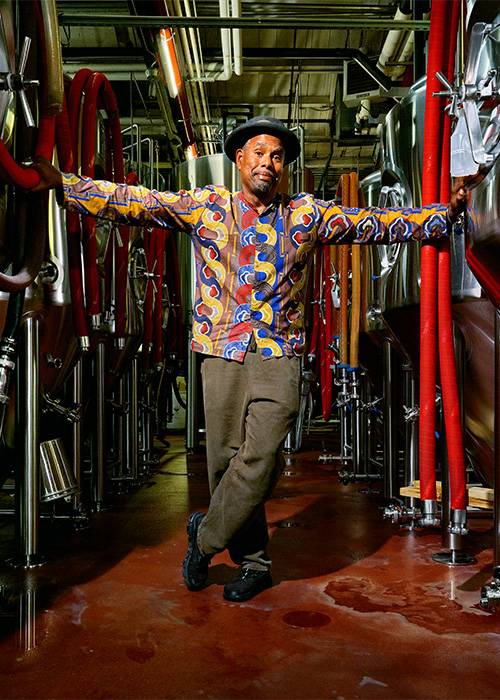
From that low point four years ago emerged the idea for the Michael James Jackson Foundation for Brewing & Distilling, a 501(c)3 organization that has issued dozens of career-advancement grants to Black, Indigenous, and People of Color (BIPOC) “to directly fund a more just, equitable, and dynamic future.” Named for Oliver’s mentor, the late British writer, beer judge, and television host Michael Jackson, the organization has emerged as a standard-bearer for social progress in the contemporary grain-based beverage industry in its brief four-year run. In his “actively and profoundly anti-racist” name, as Oliver puts it, it has issued more than 50 grants totalling nearly $500,000 to BIPOC professionals in brewing and distilling. The basic thesis that animated Oliver in the organization’s earliest days was that money could level the playing field in the beverage-alcohol business for Black workers looking to build careers. After all, the brewing credentials he expected to see on the resumes of candidates at Brooklyn Brewery cost thousands, even tens of thousands of dollars. “African-Americans in the United States have 10 percent of the family assets of European Americans,” he says. “When I had all these other kids coming in front of me, … where did that 24 year-old get $10,000 from? They didn’t earn that money, right? It’s possible, I guess, but probably not. Mom and Dad, an uncle, whoever lent them some money. Great. But we don’t have any money, for reasons that are historical.” Of course Black workers weren’t applying to Oliver’s job listings: they couldn’t afford his prerequisites.
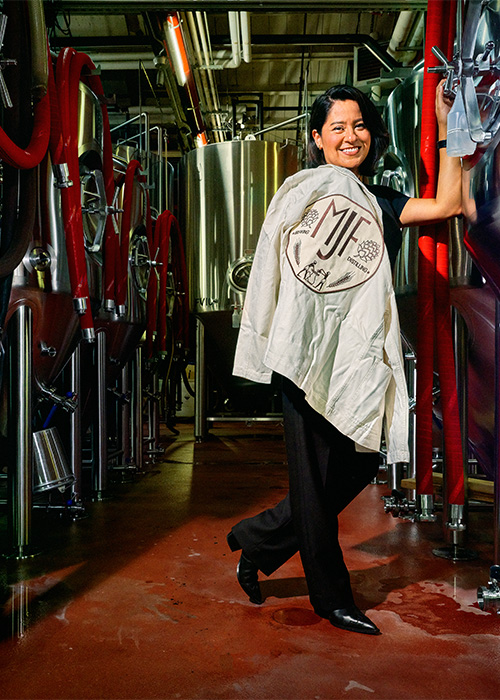
“What I decided to do, was to stand the MJF up as a replacement for a family with money,” he says. Qualified applicants would pitch the org on coursework or a certification they wanted to pursue to advance their careers in brewing and distilling, and the org would write them a check.
“You would have to do everything else yourself,” says Oliver, describing sketching out the program’s architecture early on. “We’re not asking for a different standard in any way for [MJF grantees] who are going into school. You gotta do whatever everybody else has to do. The only thing that we’re doing is [removing] the hurdle of the finance.” After a formative discussion with Sir Godfrey Henry Oliver Palmer (the Jamaican-British academic, civil-rights leader, and founder of International Centre for Brewing and Distilling at Scotland’s Heriot-Watt University for whom the MJF’s distilling grant is named), Oliver opted to restrict the grants’ eligibility to BIPOC applicants already within the profession, rather than hobbyists looking to jump in. Workers already in the industry, Palmer convinced his colleague across the pond, can trigger a sea change that amateurs trying to go pro cannot. With the MJF’s help at a crucial point in their nascent careers, those grantees “will soon be in a position of authority, and then they can hire other people, and so your impact will be exponential rather than being minor,” Oliver says, relaying Palmer’s wisdom. “I sat there in front of the screen slack-jawed.”
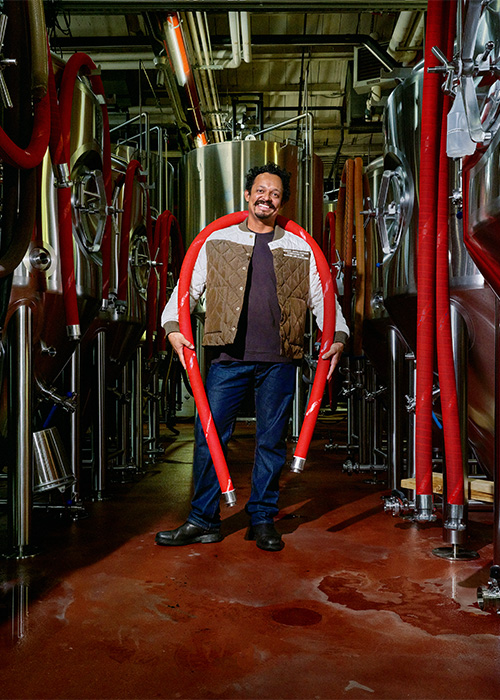
The MJF’s latest grant winners, announced in early October 2024, will take receipt of the org’s largesse in a beverage-alcohol landscape full of uncertainty, and a broader sociopolitical climate in the U.S. that has receded considerably from the collective compassion that seemed to briefly supersede the status quo in 2020. Oliver is nonplussed by corporate retreats from diversity, equity, and inclusion (DEI) programs by beverage-alcohol giants like Moslon Coors and Brown-Forman; whatever moral clarity pierced the veil of America as usual four years ago was bound to cloud over. “I was cognizant of the fact that this was going to be a short, frothy thing” in 2020, he says. “But there was a moment to be seized.” Anyway, companies that reject workforce diversification on ideological grounds “are going to lose,” he argues. “You need other ideas. You need other cultures. That is the power of America.”
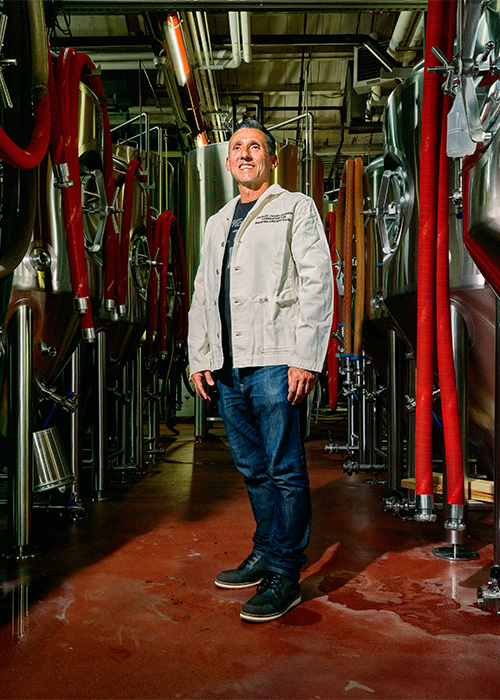
With the MJF, he and his team seized the moment to help brewers and distillers tap into that power. Now in the final year of his first and last five-year term as the org’s president, the brewmaster is preparing to turn his attention back to his regular gig (which he never fully left; his travel schedule is as packed as ever). Having reviewed the resumes of hundreds of applicants for MJF grants in his time at the young nonprofit’s helm, he’ll return to Brooklyn Brewery with a new appreciation for the job.
“I’ll tell you what, these people that are coming up? When you interview them, I mean, a lot of people are brilliant,” he says. “I’m glad that I don’t have to compete against them. If I was at the beginning of my career, I would get smoked.”
